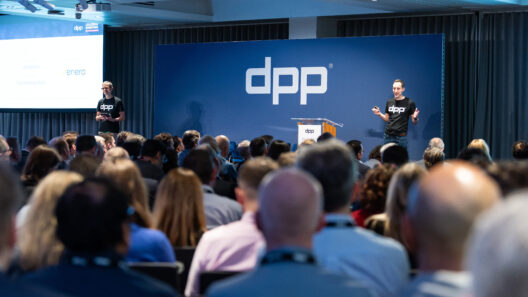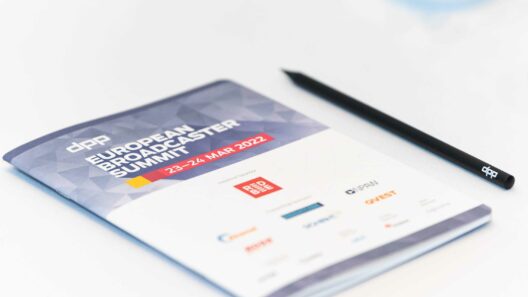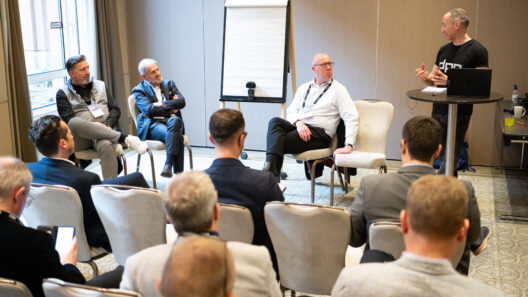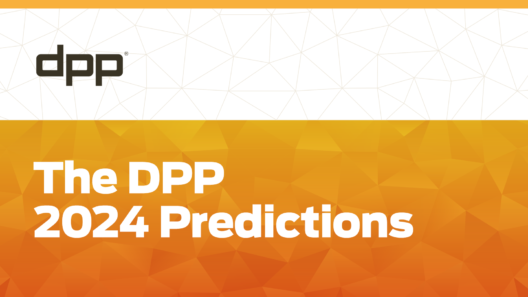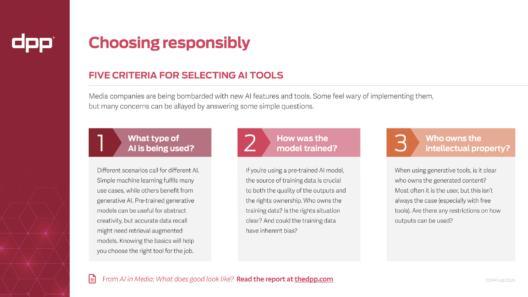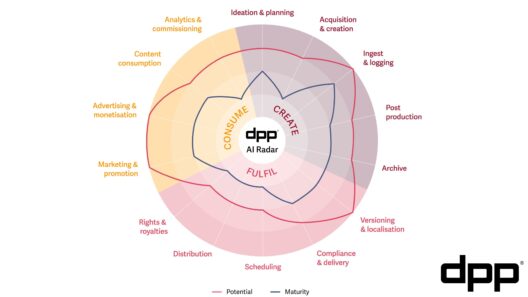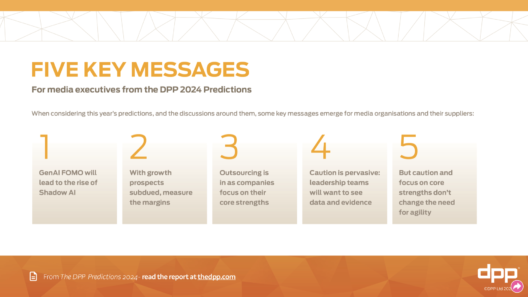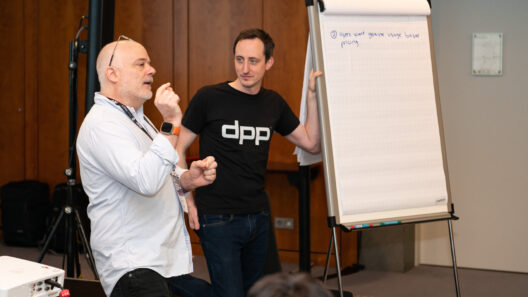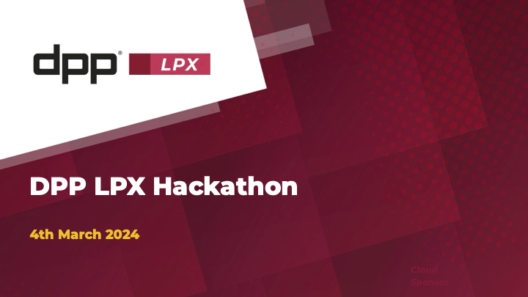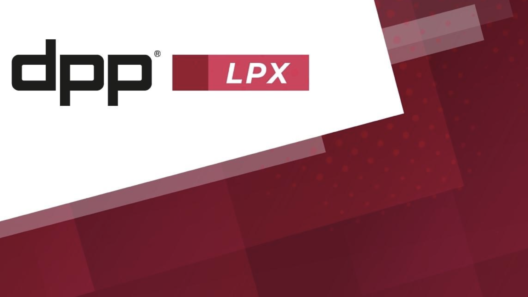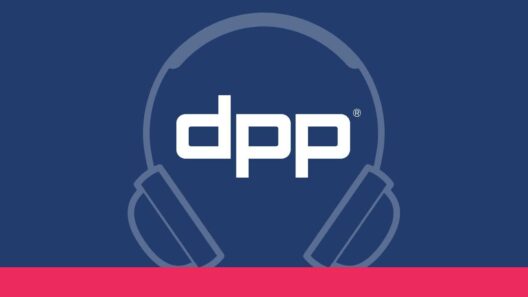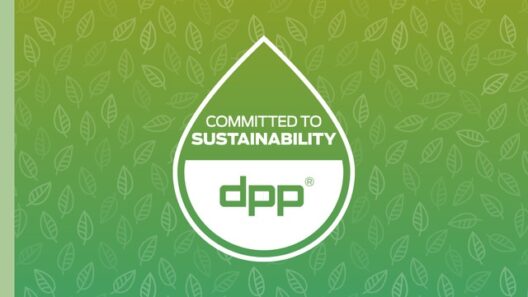The Interoperable Master Format
With more and more versions of each piece of content being produced for more countries and delivered to more devices, it’s become highly important to develop more efficient workflows for creating, storing and exchanging versions.
Technology is making the world seem ever smaller, yet now more than ever, audiences want their locality and their culture reflected in the media they consume. It’s increasingly the case that you can’t be a global player unless you’re a local player too.
This appetite for high quality, localised content brings an enormous opportunity for media companies, it also brings great cost and complexity. IMF can help.

What is IMF?
IMF is a form of component based media, allowing content producers and distributors to manage multiple versions of their content highly efficiently while retaining the quality of the master asset. For example, in an IMF workflow, you store and manage only the elements of video and audio that are unique between versions, reusing that which is shared rather than duplicating content. This creates dramatic savings in storage and file transfer. Meanwhile, the unique identification of every media item and composition means that the genealogy of content is clear, simplifying content tracking, rights management, and QC.
Browse the other tabs to find out what the DPP and its members have done to date to support implementers who acquire, master and distribute content in long and short form using IMF.
What do all the documents mean?
From the IMF standards published by SMPTE, to the guidance published by the DPP, and each individual broadcaster’s delivery requirements, there are a lot of documents that can help you implement IMF. Our IMF Operational Guidance is a great place to start as it explains IMF workflows, and links you to the other technical documents where required.
Implementing IMF for Broadcast & Online
As with any DPP technical work, the publication of specifications is just the start. Our role is to ensure that the industry can deliver. We've created guidelines, best practice documents, operations guidelines and delivery templates that you can use as well.
Implementation guidance
These documents provide practical guidance for implementing IMF in your organisation.
Industry updates
Learn about the benefits of IMF, and hear from those who are using it today:
SMPTE RDD 59
Our IMF application builds on the existing IMF standard (ST 2067) developed by the Society of Motion Picture and Television Engineers (SMPTE), which was designed for streamlining the distribution of premium feature film content.
While the foundations of IMF can be applied to most content, there are some ways in which the standards were not well aligned to the needs of broadcasters and online content producers. That’s why the DPP and SMPTE have published RDD 59.
RDD 59 makes it possible to automate the content supply chain, simplify the versioning process, enable workflow efficiencies, and reduce QC and archive storage costs. All while maintaining the quality of the original asset. The result is significant cost, storage and time savings.
RDD 59-1 IMF Application DPP (ProRes) supports the specific needs of broadcasters and online content distributors. It constrains elements of the SMPTE IMF standards, and includes features such as ProRes, HLG and audio description control track.
Recommendation DPP003: Carriage of AMWA AS‑11 Metadata in IMF
IMF makes provisions for some mandatory and some optional user-provided metadata. Adopters of IMF in the broadcast and online distribution industry may require additional metadata to be carried with the bundle. So we've published a Recommendation which defines the usage of common user metadata elements, and their carriage in SMPTE RDD 59 IMF Packages.
In particular, it addresses the use-case of carrying metadata intended for downstream packaging into an AMWA AS-11 file.
IMF Media Management API
IMF offers great efficiencies by storing media as components which can then be packaged together to make specific versions, which can then be transformed into various output formats. This means more individual files to manage, but IMF makes this easier as each file has a universal identifier. Nonetheless, it poses a question: How do you get products and services to exchange assets if all they have is an ID … or two … or a thousand?
That’s where the IMF Media Management API (imf-mm-api) comes in. It’s an open source API (application programming interface) to allow the exchange of IMF assets. The project has been a collaboration across manufacturers, broadcasters and other companies involved in the development and standardisation of IMF.
IMF API Hackathon
In 2019, we held a virtual hackathon around the IMF MM API. Learn more with these news posts:
API Requirements
The IMF-MM-API API offers a minimum viable set of operations and data to fulfil a set of requirements defined by the contributors to the project. Those requirements are:
- Finding assets from IDs
- As an Application I want to authenticate with the imf-mm-apiservice so that I can process IMF Assets
- As an Application I want to resolve a list of URLs for an Asset ID so that I can optimally access the Asset
- As an Application I want to register a URL for an Asset ID so that other applications can access the Asset
- As an Application I want to de-register a URL for an Asset ID so that other applications don’t Error 404 and annoy their users
- Finding IMF IDs from registered IDs (EIDR, MAM etc.)
- As an Application I want to resolve a list of Asset IDs for a ContentVersionIdentifier so that I can enumerate the assets required for processing
- As an Application I want to register a list of Asset IDs for a ContentVersionIdentifier so that other applications can enumerate the assets required for processing
- As an Application I want to de-register a alist of Asset IDs for a ContentVersionIdentifier so that other applications don’t Error
- Optimising a deliver without holding state
- As an Application I want to negotiate with a downstream application so that I can deliver only the IMF Assets the downstream application requires
It is also worth noting some additional principles that were applied in the design of the API:
- The API is authenticated so that access can be controlled, and to follow best practice for building zero-trust systems.
- The API returns lists of URLs for an asset, not a single URL. This is because an asset may live in multiple locations (e.g. online, near-line, cloud) and only the application knows which is best for its own use.
- Any identifier found in ContentVersionList is supported by the API.
- The API enables two applications to negotiate delivery, in order that they do not need to maintain information about the state of other applications. You can see this easily in this example:
App1: "Hello App2, here's a PKL with Asset1, Asset2, Asset3, Asset4" App2: "Hello App1, I need to retrieve Asset2, Asset3" App1: "Hello App2, here's a Delivery PKL and AM, with Asset2, Asset3" App2: "Hello App1, Thanks"App1: "Here's Delivery xx Receipt"
Project Partners
Huge thanks must be given to Mr MXF, also known as Bruce Devlin, who put the project together. Other contributing members included CineCert, Dalet, EditShare, EIDR, ReinMain University, Marquise, OwnZones, PBS, Prime Focus Technologies, Signiant, and Turner.
Layered Video Tracks in IMF
The component based nature of IMF allows multiple versions of a programme to be created, managed and distributed more efficiently. However, it has historically been limited to a single concurrent video track in any composition; a restriction which limits certain use cases that could otherwise realise the benefit of IMF’s full capabilities.
Many content providers have business requirements for overlaying multiple video tracks, for use-cases such as sign language interpretation, localisation, branding or advertising.
The plug-in described in our white paper and defined in our Recommendation simplifies the process of storing, editing, positioning, and compositing such video overlays by creating an Auxiliary Image Sequence in IMF.
IMF for Advertising
Online advertising has changed beyond recognition over the past five years with the introduction of personalised and hyper-targeted adverts. Recently, broadcast platforms have also started to offer addressable advertising.
A DPP working group was created, comprising content, service, and technology companies, to explore how component-based workflows could bring efficiencies across the advertising supply chain.
The benefits available to the advertising workflow are summarised in our business benefits report:
Proofs of Concept
Using our previously published IMF documents as a foundation, a handful of Proofs of Concept (PoCs) were devised to answer key technical questions. The results of these were presented at the DPP Explore event in July 2020.
PoC 1 addressed the challenge of submitting multi-variant adverts to a clearance process. Registering identifiers for the clearance process in the CPL and submitting an IMF package, the UK clearing house Clearcast could process all possible versions from a single submission. Flattened transmission files were then created for those versions which were delivered to broadcasters.
This process also proved the end-to-end use of CPL metadata, according to DPP003, which was mapped into the flat files as part of the conformance process.

PoC 2 used the DPP006 plug-in for Auxiliary Image Tracks in IMF to create versions by seamlessly overlaying advertisement items to the original version (OV).
The impressive video can be seen in the recording of the event.
Future work
As the advertising industry and IMF technology continue to evolve, new questions & challenges may arise. We would like to hear from you if you would like to become involved in this work.
Get involved
To find out more or to get involved with this work, please get in touch.
If your company is not a DPP member, you can learn more about the benefits of membership, or contact Michelle to discuss joining.
If your company is not a DPP member, you can learn more about the benefits of membership, or contact Michelle to discuss joining.
